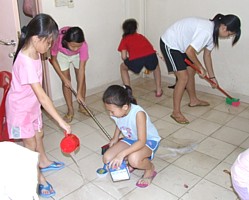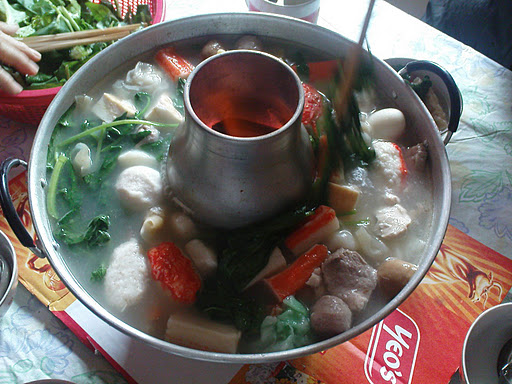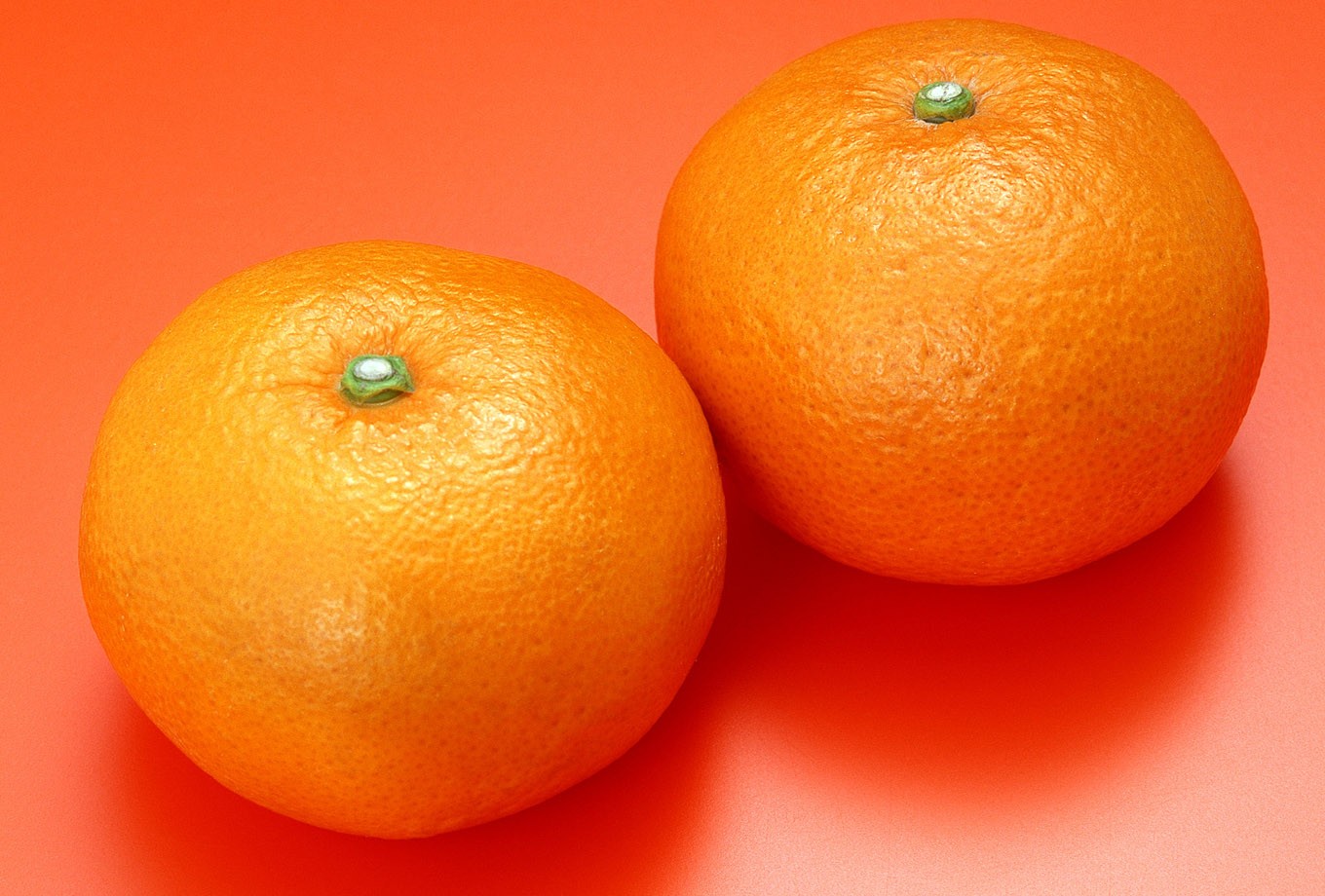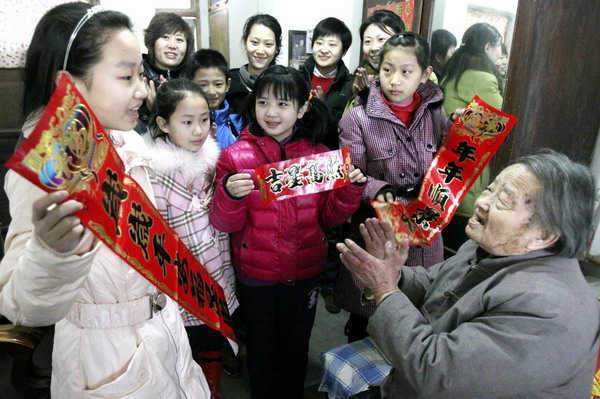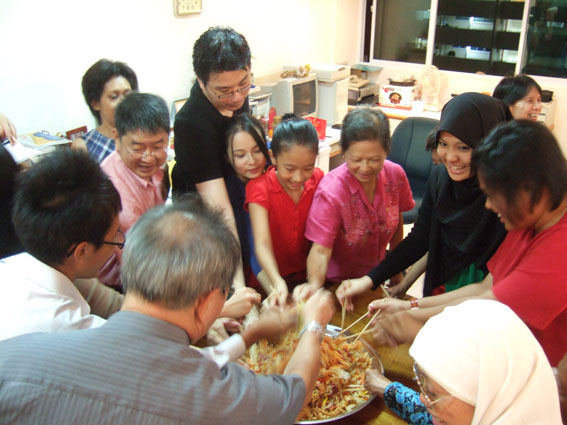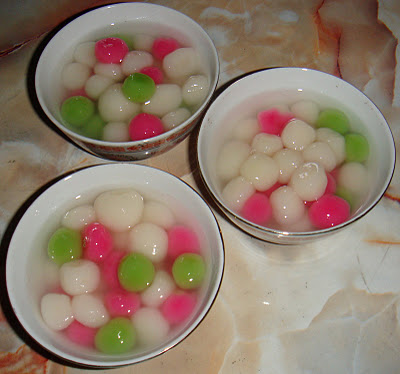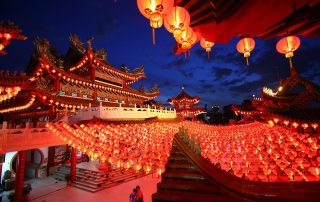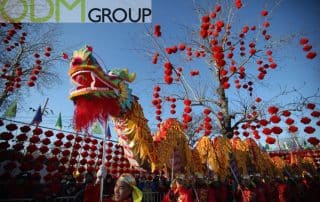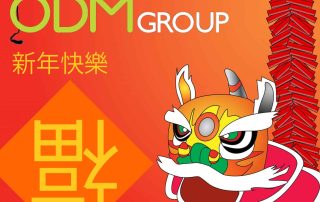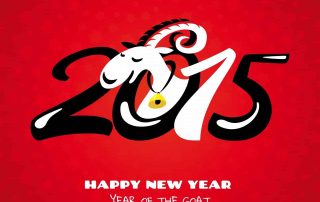Preceding Days
Days immediately before the start of Chinese New Year, Chinese families will give their home a thorough cleaning. It is believed the cleaning sweeps away the bad luck of the preceding year and makes their homes ready for good luck. Brooms and dust pans are put away on the first day so that the newly arrived good luck cannot be swept away.
Festive decorations and symbols such as pots of kumquat and flowers are put up to brighten up the home. Red scrolls and posters with auspicious sayings (春联 or “spring couplets”) are placed at the doorway. New clothes and an accompanying hairdo are mandatory during this period as well. This is why many Chinese will return home in advance, to make necessary preparations in view of the New Year.
Chinese New Year Eve
A Chinese can forget to do anything, but must not forget to have a reunion dinner on this day. This is because all relatives are gathered to have a dinner together at the same time. Dinner symbolizes unity, just like how Christmas dinner mean to Western families.
Generally, fish is always one of the many dishes on the dinner table. Fish in Chinese, ‘余’ means surpluses. The easiest and most common dish on the dinner table is the steamboat.
In the past, steamboats (refer to picture) made use of charcoal to boil a flavoured soup. With improvements in technology, induction cookers are now used. Raw meat and vegetables are then placed in the soup to cook. This encourages the entire family to stand up and eat together as one.
First Day
Most Chinese wake up early in the morning to usher in the New Year. Children will wake up early to deliver prosperous phrases and wishes to their parents while kneeling on the floor, with two mandarin oranges. Mandarin oranges have a symbolic meaning of gold ingots. Parents will return the wishes by rewarding children with red packets filled with money.
Chinese will first wish their closest relatives in the first day, in this case, relatives at home. The next will be visiting relatives that are on the paternal side of the family. Relatives normally gather at the eldest paternal relative place for visiting. This is showing utmost respect for the eldest in the family.
Second Day
The second day of the Chinese New Year, is generally for married daughters to visit their birth parents, relatives and close friends. (Traditionally, married daughters often didn’t have the opportunity to visit their birth families frequently.)
Third Day
The third day is a day of rest. Little if not no visits are made, nor are visitors received, as it is believed that evil spirits roam the earth this day and it would invite bad luck to be outdoors. Thus conservative Chinese businesses do not open until after the fifth day.
Seventh Day
The seventh day, traditionally known as rénrì (人日, the common man’s birthday), the day when everyone grows one year older. In most countries of Southeast Asia, it is also the day when tossed raw fish salad, yusheng, is eaten for continued wealth and prosperity. It is said the higher you toss, the more prosperous you will get!
Fifteenth Day of the Chinese New Year
The 15th day marks the first full moon of the New Year. It is known as Yuan Xiao Jie, meaning “first night of the full moon”. Another reunion dinner is held with lanterns and oranges being a large part of the celebrations.
During the Lantern Festival, children go out at night to temples carrying paper lanterns and solve riddles on the lanterns. According to Chinese tradition, when there is a bright full moon hanging in the sky, there should be thousands of colorful lanterns hung out for people to appreciate.
At this time, people will try to solve puzzles on lanterns, eat yuanxiao (‘元宵’) a glutinous rice ball, also known ‘汤圆’ and enjoy a family reunion.
Some related articles on Chinese New Year…
- Custom Poker Chips for your promotions
- When are your China Factories Closing? CNY 2012
- Hong Kong, China, Singapore Public Holidays 2012
- Chopsticks as Chinese New Year Promo
- When is Chinese New Year 2012 – Year of the Dragon?
- Rabbit shaped Coasters as On-Packs
- Get your Lai See Packets ready for CNY.
- Chinese New Year 2011 – Rabbit Promotions
In view of all festive seasons, ODM wishes everyone a prosperous year ahead!
